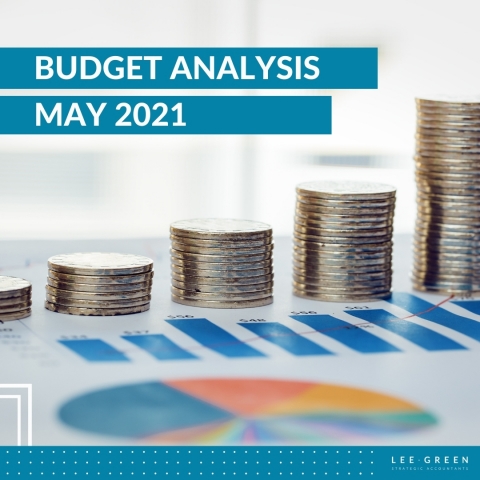
by Mike Sweeney, Director
The Australian Federal Budget was handed down on 11th May 2021 and it included a number of new reforms as well as extension of existing tax concessions. The highlights we have extracted from the budget papers are below.
Personal Tax
- Medicare levy low-income thresholds have been increased from 1 July 2020
- The Low and Middle Income Tax Offset (LMITO) which provides relief of up to $1,080 for taxpayers has been extended to 2021-22
- The Child Care Subsidy annual cap ($10,560) will be removed and the subsidy rate will be increased from 1 July 2022
- The non-deductibility of the first $250 of Self-education expenses will be removed
- Changes will be made to the Individual Tax Residency Tests to increase certainty around when an individual will be treated as a resident and taxed on their worldwide income.
Business Tax
- The Full Expensing for the purchase of assets has been extended (for assets acquired after 6 October 2020) to 30 June 2023.
- The ability for companies to offset losses against profits from prior years (the ‘Loss Carry Back Provisions’) will be extended to 30 June 2023.
- Changes are being made to the taxation of Employee Share Schemes which the government believes will make it easier for companies to offer these schemes to employees.
- The Coronavirus Small Business Recovery Loan scheme which provides access to government guaranteed loans to small and medium businesses, will be extended to increase the low take-up so far of these packages.
- There were no changes to the already announced reduction of the corporate income tax rate from 27.5% to 25% from 1 July 2021.
- To encourage investment in medical and biotech companies, the government has announced a concessional corporate income tax rate of 17% for income derived from new patents.
Superannuation
- Currently Superannuation Guarantee is not payable where monthly wages are less than $450. This threshold will be removed and Superannuation Guarantee will become payable on all wages which will mostly affect casual workers in the retail and hospitality space.
- Employers are also reminded that the Superannuation Guarantee rate rises from 9.5% to 10% from 1 July 2021.
- The work test will be abolished from 1 July 2022 for individuals aged 67 to 74. This will allow more people to have the option to contribute to their super funds.
- The “Downsizer Superannuation Scheme” will be extended from 1 July 2022 to allow people aged over 60 to contribute up to $300,000 to their super fund from the sale of the house they have lived in for more than 10 years.
Other Measures
- The JobTrainer fund will be increased to allow for more low fee and fee free training places.
- A “Family Home Guarantee” scheme will enable single parents to purchase a house with a deposit of 2%.
- From 1 July 2023 Not For Profits will be required to re-confirm their eligibility for Income Tax Exemptions.
- Additional government funding will be provided in the areas of domestic violence, infrastructure (road and rail projects across Australia have been specifically identified), aged care, national disability insurance scheme, COVID vaccination programs and mental health.
The budget is designed on the basis that international borders will not be reopened until mid-2022 at the earliest and assumes a large percentage of the population receive the COVID vaccine by the end of this year. Any changes to these timelines will directly affect the ability of the economy to fully recover from the pandemic…..at which time we’ll have to head to craft breweries (who just so happen to have changes to their excise payments!).
This information is current at the time of publication and further updates may have occurred since that date. Please contact us for the latest information.








